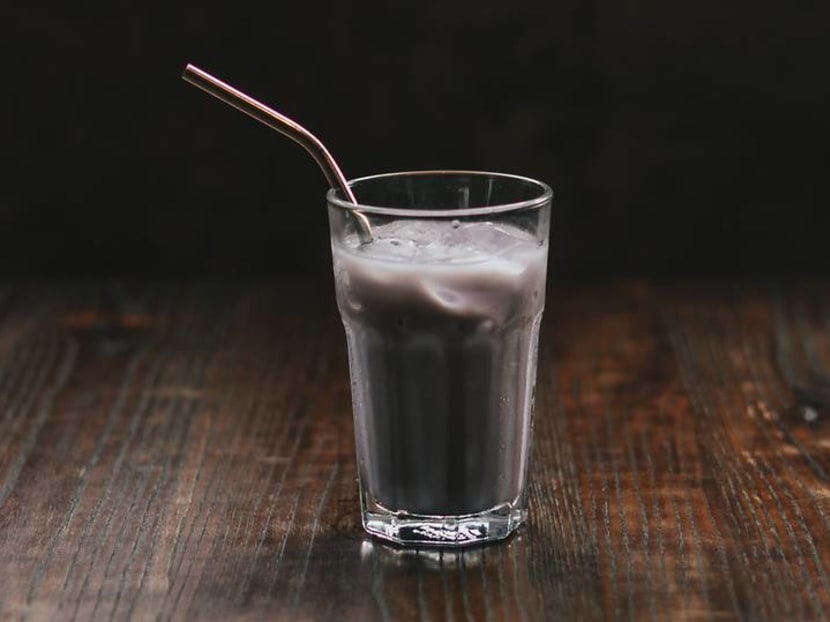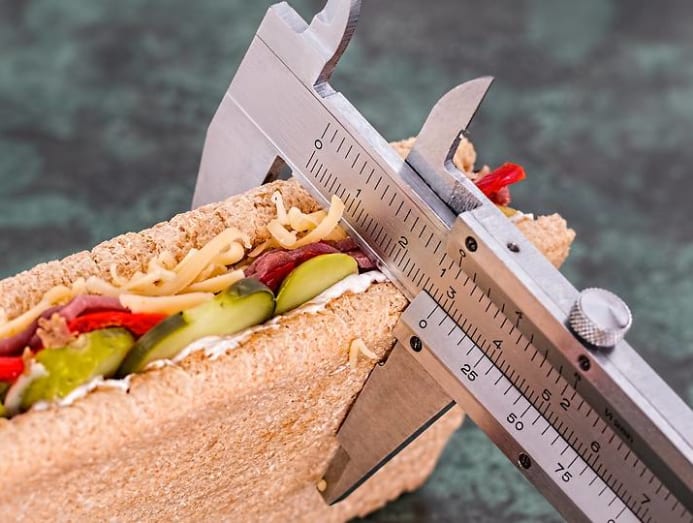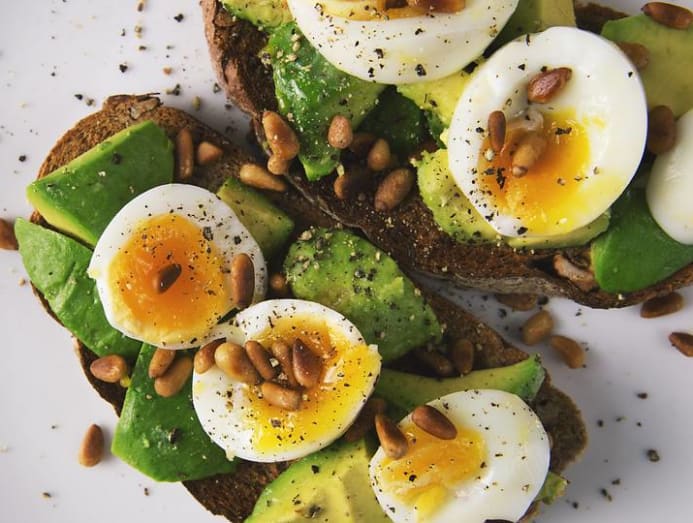Want to maximise your gym results? Drink chocolate milk post-workout
Eating the wrong food at the wrong time might cancel out your efforts in the gym. Here is what experts say you should and shouldn't eat – and when.

(Photo: Unsplash)
You’ve kept your workout form tight, your reps accounted for and you hardly miss your gym sessions. You’ve also been upping your game by varying the exercises and gradually increasing the intensity.
In short, you should be on your way to physical transformation – only the number on your digital weighing scale hasn’t changed much and you don’t see any difference in the mirror. So, what gives?
READ: To improve metabolic health, aerobic fitness may trump strength training
Consider what you eat before and after working out because food is fuel for your body. What you put into it – even when you refuel – can affect how your body reacts and looks.
Worse, the wrong eating habits may cause you to lose the muscles you’ve worked so hard for, or lead you to feel fatigued instead of energised.
So, are you sabotaging your efforts in the gym? The experts digest it for you below.
YOU SKIP BREAKFAST TO BURN FAT
You may be right on that account, according to Dr Verena Tan, senior development specialist with FrieslandCampina, a Dutch multinational dairy cooperative.
Skipping food in the morning or before a workout may tap into the body’s stored fats as source of fuel, she said.

“An increasing number of studies have shown that working out in the morning after an eight- to 12-hour overnight fast may lead to 20 per cent more fat oxidation and decreased energy intake for that day.”
On the flip side though, she said, there are also studies showing that fasted exercise makes no difference in overall fat loss.
So, should you eat breakfast or not? It depends on the workout you do, said Dr Susan Kleiner, affiliate assistant professor at the University of Washington, School of Medicine’s Department of Medical History and Ethics, and author of The New Power Eating.
If you’re keeping to a low- to moderate-intensity exercise level, skipping brekkie is probably okay. “But you won’t get the calorie burn that you are seeking, nor the improvements in performance,” she said.
If you’re trying to get faster, stronger and/or bigger, you have to kick up your workout intensity. And to do so, you need fuel in the form of carbohydrates, said Dr Kleiner, who is coming to Singapore to speak on sports nutrition at the inaugural Strength Summit Singapore on Oct 17.
Without carbs, “you will lessen the length of your workout and fatigue sooner because it is at the end of exercise when carbohydrate helps you extend your workout before exhaustion”.
WHY YOU NEED CARBS
Which brings us to the topic of carbs. For the average exerciser, a diet of 40 per cent carbohydrates, 30 per cent protein and 30 per cent healthy fat is a good place to start, said Dr Kleiner.
But once you start to increase the “intensity and duration of your sport or training, the more carbohydrates you need to fuel exercise”, she said.
“High-intensity exercise requires carbohydrate fuel. Without it, you may feel like you’re working out really hard, but if we measure your actual work, or watt output, it’s only mediocre.”
READ: The keto diet is popular, but is it good for you?
And it’s not just physical gains. Dr Kleiner said that lacking carbs in your diet can mess up your emotional health. “Diets that are less than 40 per cent carbohydrates may increase risk of depression in depression-prone individuals,” she said.
A diet that contains less than 25 per cent to 30 per cent fat may decrease your ability to cope with stress and anxiety, if you are stress- and anxiety-prone, she added.
“Since that is most of us in the world today, I like to use those numbers as guidelines, but I am not dogmatic about them.”

But if you’re not sure about the food proportions to have on your plate, it is best to consult a dietitian, said Dr Tan. “Knowing that everyone is different and has his own exercise goals, it is important to tailor the intake of macronutrients based on specific needs,” she said.
READ: Need more probiotics in your diet? Find out which foods are better for your gut
If you know it's going to be a mad rush from the office to the gym, leaving you with no time to eat, make up for it with a well-balanced lunch at noon, said Dr Kleiner.
“Then, have a snack about 90 minutes before intense training that is a combination of mostly carbohydrates and a little or no protein, with very little fat or fibre,” she said.
“Fat and fibre, and even protein, slow down digestion and make you feel full longer, which isn’t good when exercising.”
You could snack on yoghurt and fruit, a bowl of cereal and milk, or a small turkey or egg sandwich. Just be sure not to eat more than 200 to 300 calories.
DRINK CHOCOLATE MILK AFTER EXERCISING
Although the science isn’t exact, it is recommended to eat immediately and up to two hours after exercising, said Dr Tan.
“A post-workout meal comprising high-quality protein sources, meaning it contains all the essential amino acids, has been shown to stimulate robust increases in muscle protein synthesis.”
But you don’t have to down a protein shake or cook lean chicken breast to meet your post-workout needs. A very delicious solution: Low-fat chocolate milk.
“It consists of a 4:1 ratio of carbohydrate and protein – similar to many commercial recovery beverages – and provides fluids and sodium to aid in post-workout recovery.
READ: If you're not losing weight despite exercise, this could be why
One study showed that consuming chocolate milk immediately after exercise and again at two hours post-exercise appears to be optimal for exercise recovery and may lower the extent of muscle damage,” said Dr Tan.
Any food that has carbohydrates, protein, fluid and electrolytes will also help promote recovery after exercise, she said, citing a fruit smoothie or a protein-rich sandwich as an alternative.
“Traditional sports drinks have the carbohydrates and electrolytes, but usually no protein.”





